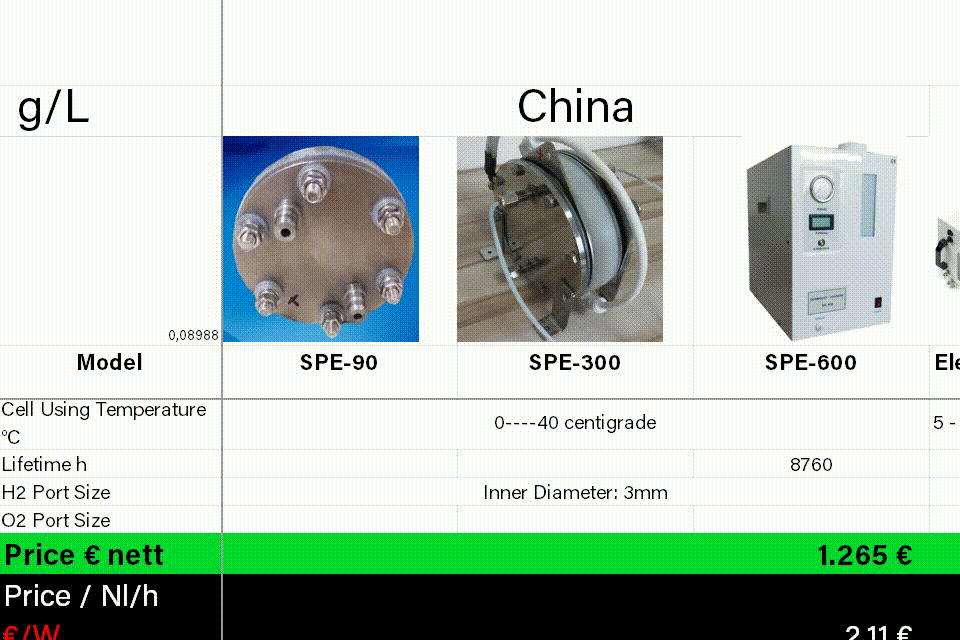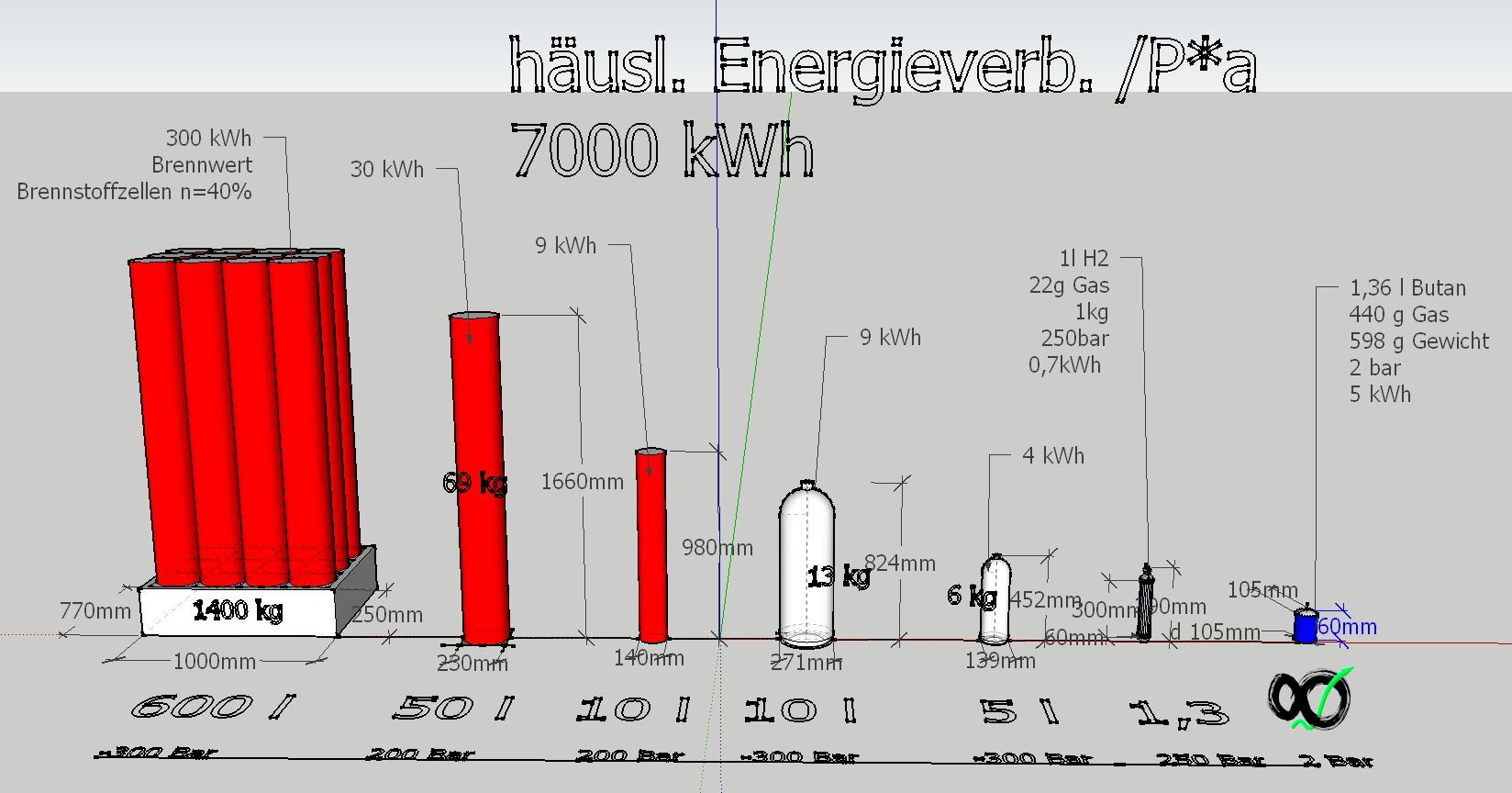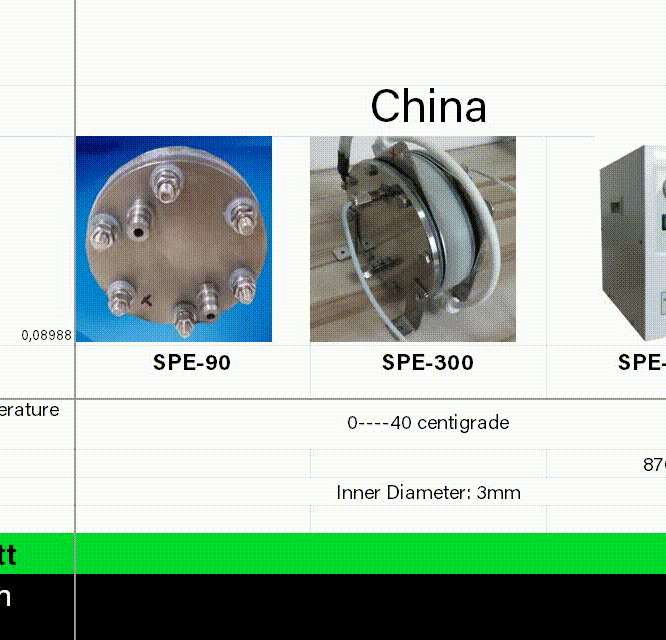The hydrogen economy evolves quick
In this hydrogen economy study we collected prices and technical data to look at a cost benefit analyses of hydrogen.
We found out that some hydrogen appliances can bring financial benefits in 2021.
Startups are found, experienced companies’ come up with hydrogen parts, hydrogen component or elaborate hydrogen systems. At what price these hydrogen devices are sold, decides the breakeven point for the hydrogen investor. In this hydrogen study we collected prices and technical data to look at a cost benefit analyses.
For the passive income through hydrogen production, you need to calculate the financial value of hydrogen in the market in 2022.
Why should we think about hydrogen projects for buildings?
Green hydrogen conversion has no impact on your environment. Hydrogen doesn’t emit Carbon Dioxide CO2. Hydrogen is not toxic and doesn’t pollute your surroundings. It is easy to produce Hydrogen. Investing in hydrogen technology is not only cutting your bill, but it might also generate income as you will understand after reading this abstract about hydrogen.

Contents
The hydrogen economy evolves quick 1
Why should we think about hydrogen projects for buildings? 1
What you should know about hydrogen 1
How much costs a kg of hydrogen on a hydrogen station or filling station? 2
How much costs a kilogram of Hydrogen in a compressed cylinder? 2
What are the hydrogen prices in comparison with fossil fuels in bottles like gas? 3
What is the pressure of a Propane gas bottle? 3
What is the pressure in a butane container? 3
Energy quantities of hydrogen 4
How much Energy is in 1 kg of Hydrogen? H2 kWh/kg ? 4
What happens if you burn hydrogen? 4
How much Energy is in 1 cubic meter of Hydrogen? H2 kW hr/m³ ? 4
How much liters of water do I need to produce one liter of hydrogen? 4
What can you do with stored hydrogen? 5
What hydrogen products are on the market in 2021 6
Two main electrolyzer types are ready to be purchased 7
How to get prices for hydrogen electrolysers? 9
How can I compare electrolysis on the market? 9
What you should know about hydrogen
Before you can store your left over renewable Energy (surplus) through hydrogen you need to know the hydrogen market value and other energy sources like electricity or diesel.
What is hydrogen worth?
You can buy hydrogen on the market either at gas stations or in gas cylinders. There is an enormous price difference between portable products like cartridges to filling your hydrogen container and hydrogen at a service area, mostly for hydrogen vehicles.

How much costs a kg of hydrogen on a hydrogen station or filling station?
The regulated price for Hydrogen is 9,5 €/kg at either 350 or 700 bar in Germany.
For cost benefit analysis of hydrogen we rather take 8,5 €/kg.
You could say, one kilogram of hydrogen is worth about 10 $ US Dollar at 350 Bar at a hydrogen station.
If you compare the hydrogen price at the gas station with fossil fuel or with the electricity from the grid you come up with the following calorific prices of H2.
- fossile Hydrogen 28 Cent/Kilowatt hour
- Strom 30 Cent/Kilowatt hour
- Diesel 14 Cent/Kilowatt hour
How much costs a kilogram of Hydrogen in a compressed cylinder?

Here you’ll find the hydrogen cylinder formats, to see if they fit to your hydrogen house.
| Fill | Volume | Pressure | m at 0°C | incl. VAT | relative | Hight | Width |
| m³ | l | bar | kg | Market Price | Euro/kg | m | [m] |
| 1,78 | 10 | 200 | 0,18 | 105,79 | 595,85 | 0,975 | 0,14 |
| 8,89 | 50 | 200 | 0,89 | 125,55 | 141,42 | 1,655 | 0,229 |
| 106,68 | 600 | 200 | 10,65 | 1394,68 | 130,92 | 1,9 | 0,77 |
| 8,89 | 50 | 300 | 1,33 | 189,81 | 142,54 | 1,655 | 0,229 |
| 151 | 600 | 300 | 15,98 | 1923,04 | 120,35 | 1,9 | 0,77 |
| Mean | 133,81 |
These prices are for fossil Hydrogen. (turquoise hydrogen)
The price for H2 in pressurized gas cylinders is about 4 Euro per Kilowatt-hour (4€/kWh 4€/kWhr).
If you want to buy hydrogen in a cylinder you can calculate about 130 Euro per kilogram. This is without bottle and transport.
What are the hydrogen prices in comparison with fossil fuels in bottles like gas?

1 kg Propane gas contains 12,87 kWh of Energy.
Propane costs around 1,6 €/kWh.
A big difference is the pressure.
What is the pressure of a Propane gas bottle?
It is relative to the ambient temperature. Propane won’t evaporate above 8bar or 0,836 MPa (20 °C).
What is the pressure in a butane container?
The pressure varies with temperature, too and might be little more than 2bar.
A reasonable price for green hydrogen in a pressurized steel bottle could be approximately 130 €/kg.
The full pallet of 12 big hydrogen cylinders at 4500 PSI consists only 16 kg of hydrogen. Which leads us to the Hydrogen properties in brief.
Energy quantities of hydrogen
How much Energy is in 1 kg of Hydrogen? H2 kWh/kg ?
| Hydrogen | Diesel |
| kWh/kg | kWh/kg |
| 33,33 | 11,9 |
| Kg CO2 | Kg CO2 |
| 0 | 3,14 |
A kilogram hydrogen has 33 kWh/kg. That is 3 times the energy of one kilogram of diesel fuel.
What happens if you burn hydrogen?
The gas will explode. There is no other emission than Water. In comparison with 1kg diesel it will just burn but emits 3,14 kg of Carbon Dioxide into the atmosphere. Burning hydrogen emits no CO2.
To burn hydrogen is not more dangerous than the gases we use in our households for decades like Methane, Butan and Propane. Hydrogen could even be considered less dangerous than natural gas because it is lighter than air.
How much Energy is in 1 cubic meter of Hydrogen? H2 kW hr/m³ ?
| Calorific Value of
Hydrogen | Calorific value of
Diesel |
| kWh/m³ | kWh/m³ |
| 3 | 9700 |
| Density of H2 kg / m³ | |
| 0,08988 | 845 |
One kilowatt hour (kw hr) per kilogram of hydrogen is the energy relative to the mass.
One kilowatt hour (kw hr) per cubicmeter of hydrogen is the energy relative to the volume.
How much liters of water do I need to produce one liter of hydrogen?
Theoretically you could produce 1240 liters of hydrogen gas with 1 liter of liquid water. Or in other words with 1 kg of water you could theoretically produce 110 g H2 and thus safe 3,6 kWh.
The practical waterfactor for electrolyzers varies around 0,8 to 0,9 Liters of Water per Norm Cubic meter (l/Nm³) of Hydrogen.
Without reusing or recycling the water from hydrogen gas drying process, water losses will be high. Practically you need about 1 kilograms of water produce 80 grams of hydrogen if not reusing damp hydrogens water. These are real numbers from actual electrolyzers. The theoretic values are different because they do not consider the moist or vaporised water left in the hydrogen from the electrolyzer.
By weight the Water content directly after the electrolyzer can be 5 times the hydrogen weight.
This leads to the importance of hydrogen purity and the hydrogen demister.
What can you do with stored hydrogen?
In this 2021 study about hydrogen the focus is on the building industry. What are useful hydrogen applications for houses.
We divide the residential hydrogen appliances in low tech hydrogen systems and high tech hydrogen systems.
High tech hydrogen systems

Figure 1 Home Power Solutions Picea Germany
If you want to be 100 % energy independent with hydrogen, you can use your excess solar energy to convert into hydrogen through an anion exchange membrane AEM electrolyzer and than convert it to electricity through a hydrogen fuel cell. In order to store the hydrogen from your surplus photovoltaic you need to compress it and store it in cylinders under 200 bars. The fuel cell than takes it in times you need electricity by night or in winter. You can even use the fuel cell running temperature to heat up your home through a mechanical ventilation system. You need clean water to run the electrolyzer. This AEM electrolysis uses potassium hydroxide KOH as catalyst which you need to buy every year.
Low tech hydrogen systems

A low tech hydrogen system thrives for simplicity and focuses on effectivity rather than efficiency.
If you like simple systems and you are living in the northern hemisphere, one of the biggest energy demands is heat in winter. Burning pure hydrogen only leaves water. There are already hydrogen gas boilers in Europe.
Simple Hydrogen generation through Proton Exchange Membrane Electrolysis stored in big tanks maybe underground is produced during summer.
Solar on the roof can convert 15% of the Sun while collecting the water for the electrolyzer. In between there is a battery needed to avoid switching. The entire low tech hydrogen system is direct current DC. No expensive converters are needed. Depending on the place and energy demand a compressor can be added to the system but is not mandatory. The needed electrolyzers are small in size and wattage.
What hydrogen products are on the market in 2021
This study focuses on small scale appliances. No hydrogen plant or industrial or huge comencial applications.
As with solar the technology will really kick in if there are low cost hydrogen appliances for average households.
Two main electrolyzer types are ready to be purchased
If you want to buy hydrogen generators you have to decide for either AEM or PEM technology.
| AEM | PEM |
| Anion exchange membrane | Proton Exchange Membrane |
| KoH, NaOH | Platin, Iridium, Titanium |
| Strong base, corrosive, harmful | Expensive, rising prices, good investment |
| 35 bar max | 100 bar max |
| Rainwater might do it | Deionized water needed |
| 30000 | 40000 hr max lifespan |
| 45 °C running temperature | 70 °C |
Cost of electrolyzers. What matters for hydrogen economy?
To understand the cost of electrolyzers we need to understand the necessary components
- Electrolyzer / Stag
- Water system
- Gas dehumidifier (hydrogen gas dryer / h2 demister)
- Safety valves
- Electrical equipment
- Program

All these components together can be understood as hydrogen gas generators
- Compressor
- Piston
- Metal hydride compressor
- Hydrogen Storage tanks, cylinders
- Iron based hydrogen container
- Liquid
- Needs cryogen temperatures
- Gaseous
- Pressures from 35-350 bar
- Liquid
- Metal hydride canister
- Needs high temperatures
- Composite materials
- Iron based hydrogen container
It is important to consider that there is no recycling for composite hydrogen cylinders like carbon fiber in resin. In the building industry steel containers are best in terms of price and circularity.
Renewable Hydrogen electrolyzers with a smart program for compression and storage can be understood as hydrogen systems.
Still the appliances for the user are needed to close the loop between production, storing and consuming hydrogen.
- Appliances
- Hydrogen Fuel cell
- Electricity
- Water
- Heat
- Hydrogen boilers
- Hydrogen stoves
- Hydrogen grill
- Heat
- Water
- Hydrogen Fuel cell
Mobility
- Hydrogen fridge
- Hydrogen vehicles
- Hydrogen bike
Electrolyzers from 240 W to 2,5 kW cost from 2000 € to 5000€.
Hydrogen generators producing from 24 liter H2 per hour up to 2,6 m³ per hour cost from 10.000 Euro to 60.000 Euro.
Price for hydrogen systems, which mean including storage cost from day storage 46.000 Euro to seasonal storage for 67.000 Euro.
How to get prices for hydrogen electrolyzers?
You only get the prices for hydrogen electrolysis if you ask a quote per mail. You find a bunch of hydrogen businesses online which haven’t a price for their hydrogen technology. So it takes a long time to get prices for hydrogen technology.
Electrolyzer prices are important to see if these hydrogen applications serve your needs and your money.
You get the Hydrogen Component Prices in the Hydrogen Shop.
How can I compare electrolysis on the market?
Within the international hydrogen pricelist, you get the technical data to compare electrolysis on the market.
Data about the Hydrogen and Oxygen output pressure, estimated lifespan, simple cost benefit analysis is included in the list.
Furthermore you get informations on:

Wow. Je viens de voir ce que tu as écrit à propos de l’hydrogène. C’est vraiment super bien recherché et calculé. Bravo!
Comme Paul voulait en savoir aussi davantage, je me suis permise de lui envoyer ce lien.
A bientôt MC